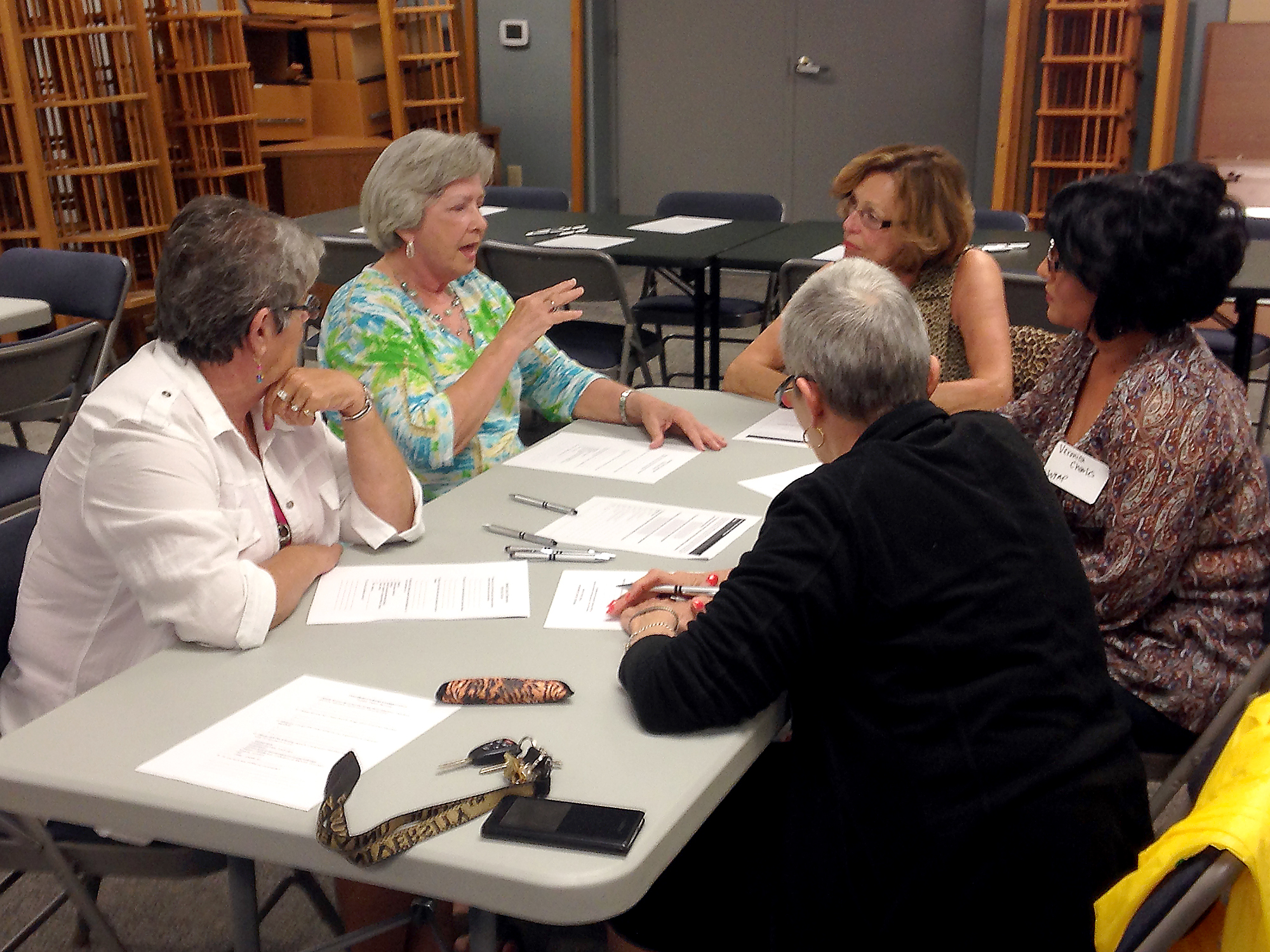
By Navar Watson
Amidst all the construction and growth, the Cultural Collaborative of Westfield is aiming to find the city’s core identity – and it needs citizens’ help.
“When we love our city as we love another person, we will go to extraordinary lengths to defend her,” City Council President Jim Ake said at a June 19 public forum at the Westfield Washington Public Library, 333 W. Hoover St.
This was the second and last forum the Cultural Collaborative held, where they surveyed residents on what they like about Westfield and what they feel needs to be improved. The Public Engagement Committee, one of the Collaborative’s seven subcommittees, is in the process of compiling the surveys, which were also offered online.

The end goal is to present a strategic plan to funders telling them “this is what we want to happen”in Westfield, consultant Peggy Monson of Impact LLC said. The Cultural Collaborative, funded by a grant from Hamilton County Tourism and the Legacy Fund, hopes to present this plan by December.
“I am so excited about (this project),” Mayor Andy Cook said at the forum. “I think when a lot of cities take off (on) growth and building things, they tend to forget their history and their culture.”
Approximately 20 people attended the forum, about half the attendance of the first forum on June 12. Citizens split into groups to take the surveys and discuss possible improvements for Westfield, later they presented their thoughts.
One group pushed for more inclusion of the city’s Quaker heritage, suggesting a Quaker Day and a trail with historical markers throughout the city. They also recommended a trolley system that would connect the Grand Junction area – or “new” Westfield – to the old Westfield.
Veronica Charles of the Public Engagement Committee, however, said her group opposed the idea of labeling an “old” and “new” Westfield, rather than considering them one.
Resident Gloria Del Greco voiced her disapproval of the name “Grand Junction,” saying it took away from the identity of the city. Others suggested it be labeled “Westfield Grand Junction” instead.
“You’re losing the town,” Del Greco said about removing the city’s name. “You’re giving the town away.”
Other groups agreed to have more signage telling drivers when they have entered Westfield and when they are leaving. Ake said there will be more signage once the construction on U.S. 31 is finished.
A common concern among the groups was the lack of entertainment and nightlife in Westfield.
When residents have friends come and visit, they often travel outside of the city to find entertainment, Ake said. He said this was a key concern among the people at the first forum, most of who were in their mid-30s – the average age of Westfield residents.
Citizens also said the city’s utilities were too overwhelming and should be buried like they are in Noblesville, Carmel and surrounding areas.
At the end of the meeting, Ake said the Collaborative will “tabulate” everyone’s comments and surveys and report the findings.
“I think it’ll be good for everybody (in the end),” Ake said. “Everybody’s going to have a little of give and take, but I think it will be a very, very positive exercise in creating a unique Westfield experience.”
These surveys were all a part of defining “the heart and soul of Westfield,” Monson said.
When a city finds its identity, three things will happen, she said. The local economy will grow, visitors will want to return, and residents will have a better quality of life.
“When we have an emotional attachment to our place,” Ake said, “we’re less likely to leave it.”



